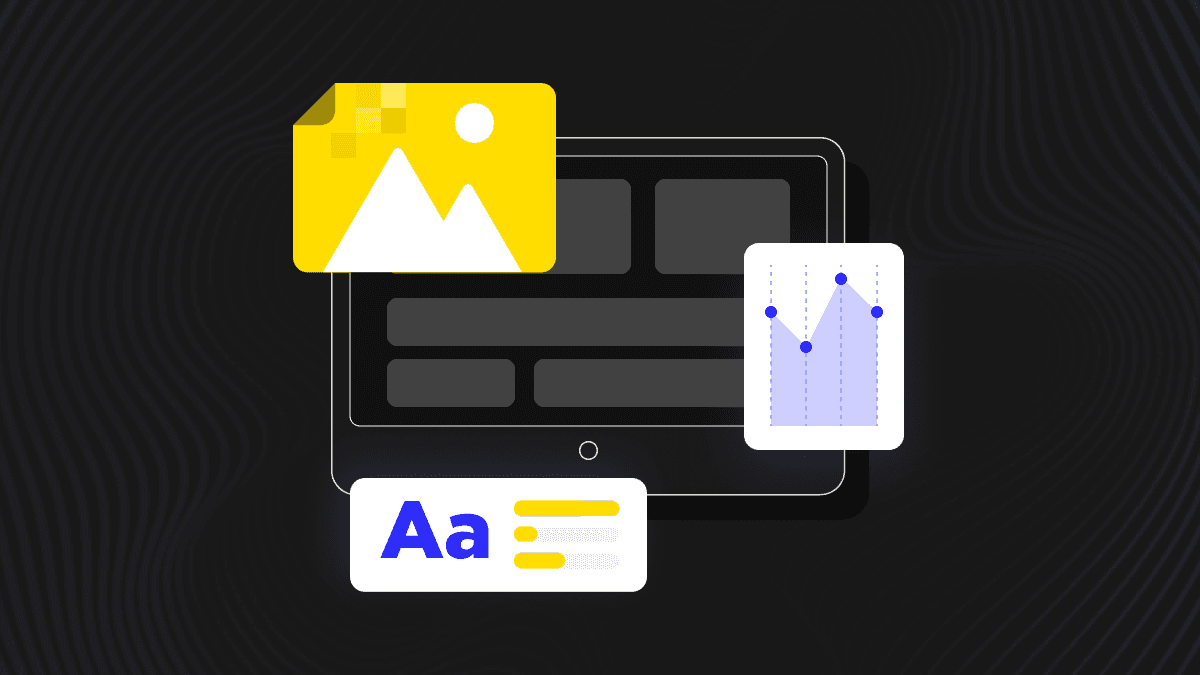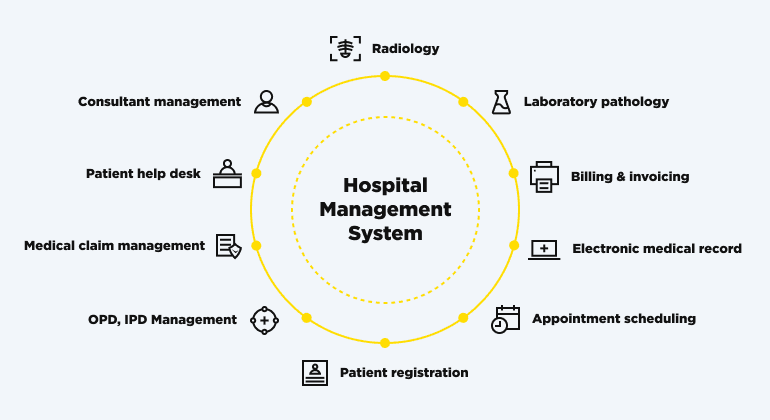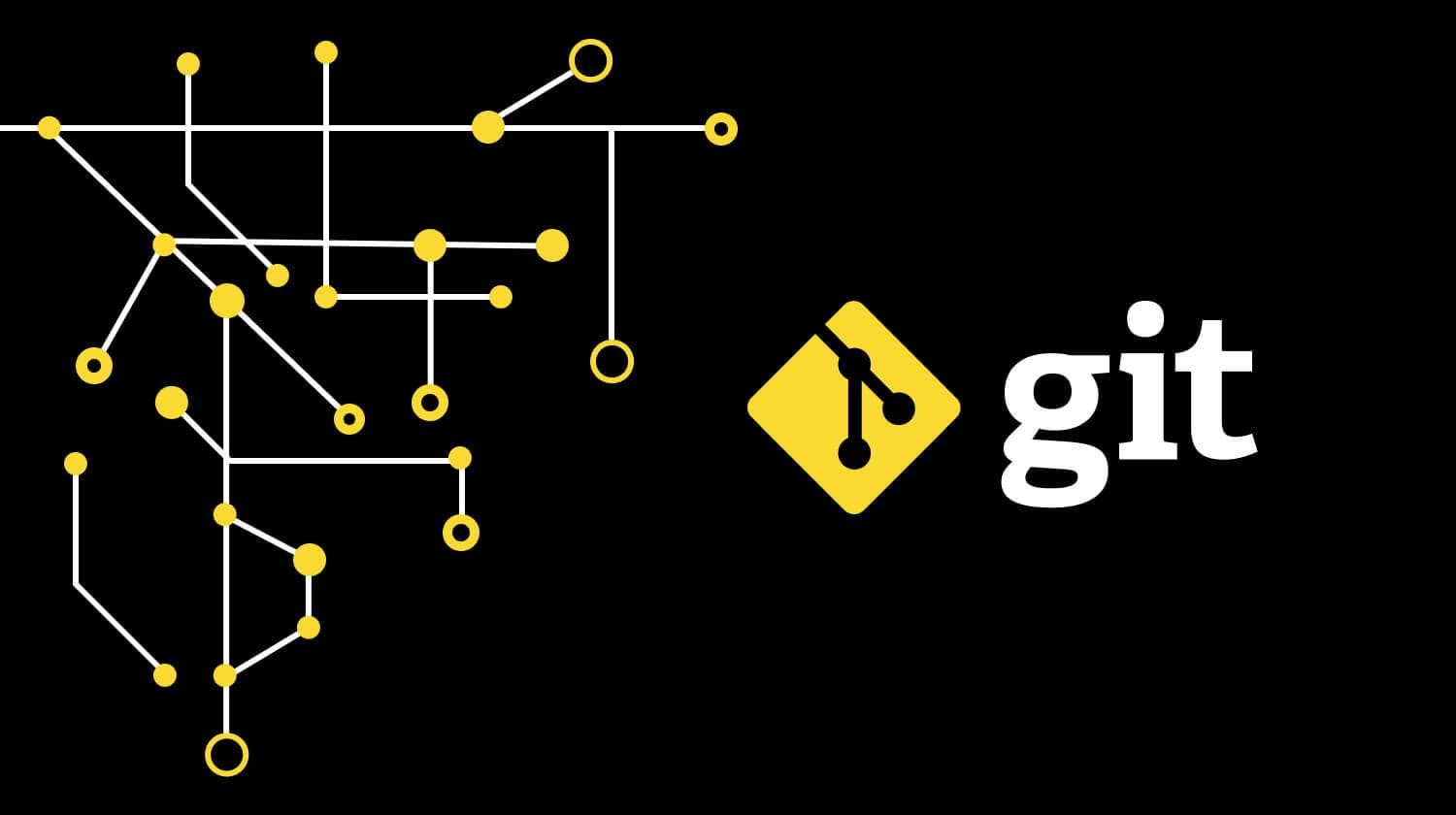Have you ever wondered how artificial intelligence is changing the way we advertise goods and services? Let’s be honest: our online experiences are not the same as they used to be even 5 years ago. This tech AI solution is taking over, and the marketing industry is no exception. We want to take you on an adventure to discover how content generation is being revolutionized by generative AI in marketing and how it is changing marketing strategies. And, ultimately, how it may influence customer satisfaction.
Generative AI Explained
Let's start by defining generative AI precisely. It describes artificial intelligence systems that are able to produce new text, images, videos, or even music using patterns they have discovered from previously collected data. Deep learning models are used by generative AI to "understand" complex datasets and produce unique results, in contrast to traditional AI, which operates according to pre-programmed rules. This means that in the field of marketing, artificial intelligence can produce content, plan effective marketing campaigns, examine audience behavior, and much more – all at nearly the speed of light (well, almost).
Instead of merely imitating human creativity, generative AI models foster it. AI technologies enable marketers to generate enormous volumes of content effectively, freeing up time for more complex strategic tasks, such as writing product descriptions, emails, or social media posts. And that's only the start. Technology's uses in marketing are growing more potent and varied as it develops further.
How Generative AI Transforms Marketing Strategies
Marketing strategies are no longer built solely on gut instinct and traditional marketing approaches. The thing of the past cannot guarantee successful future developments. Consequently, generative AI in marketing has introduced data-driven precision into the mix, transforming the way marketers operate. Having the ability to analyze huge amounts of datasets and different customer segments and identify market trends, AI can generate data-driven insights that help brands make more informed decisions.
To make it clearer for you, we’d like to provide you with some crucial analytics from different resources. So, what makes gen AI in marketing so special?
#1 The reason to implement gen AI is proven by the fact that businesses that invest in that are experiencing an income increase between 3% to 15%. Moreover, their ROI goes higher up to 10-20%.
#2 IBM has discovered that 35% of respondents consider generative AI to be one of the most promising technologies in terms of all business operations (marketing included).
#3 The most important factor of generative AI success is the prediction it is to reach a value of $107.5 billion by the year 2028.
#4 You also need to catch up with the rest of the market. A 2023 study by Deloitte discovered that 41% of marketing, sales, and customer service organizations had already adopted generative AI.
#5 What is even more important is that a 2023 Boston Consulting Group cross-industry survey figured out that between 40% and 50% of those who already use gen AI are involving it in social listening, predictive analysis, generating custom product descriptions, and chatbot marketing.
Do these numbers look like a good reason for you to start adopting AI solutions? We are more than sure that the answer is “Yes.” The point is when you start to make sure your company can excel and overtake the competitors.

Get a free quote today!
Contact us3 Key Advantages of Using Generative AI in Marketing
We can try and just persuade you why you need generative AI for marketing efforts. Nonetheless, the best way to prove something is to show the real examples and advantages that come with it. That’s our unobtrusive way of approaching the topic of the benefits of using generative AI in marketing. Buckle up and explore the main upsides your project may experience.
Saving time and money with AI-driven automation
It's true that marketing workflow can require a significant investment of time and money. A marketing team's day can be greatly consumed by the process, which includes ideation, personalized content creation, and platform distribution. However, generative AI tools is revolutionary.
AI allows marketers to focus on creativity and marketing strategy by automating repetitive tasks like creating ad copy, posting on social media, and drafting emails. Consider HubSpot, which automates client interactions and customizes content using AI technologies. This has made it possible for them to significantly cut down on the amount of time spent on manual labor, increasing productivity while saving time and money.
Generating personalized marketing content
Personalization is crucial, and generative AI in marketing makes it easier than ever to achieve. AI systems examine customer data platforms to produce hyper-targeted advertising that appeals to particular demographics. Artificial Intelligence guarantees that you get relevant content, including personalized email campaigns and product development recommendations, is consistently relevant.
Beyond campaign automation, brands are increasingly turning to AI marketing assistants — intelligent tools that unify customer data analysis, content generation, and campaign optimization into a single platform. These assistants help marketers move faster, reduce repetitive tasks, and maintain consistency across all channels.
One of the best examples of a company using AI for hyper-personalization is Netflix. Their AI-powered recommendation engine tailors each customer experience according to their viewing preferences. This degree of customization creates a benchmark that many other brands are trying to meet and keeps consumers interested and coming back for more.
Fueling innovation and inspiration
If you've ever experienced a creative block, you will recognize the value of AI in producing original ideas. Trends, customer behaviors, and historical data can all be analyzed by generative AI for marketing to provide marketers with fresh ideas for content that they might not have thought of otherwise. From generating blog topics to brainstorming advertising campaign optimization, AI adds an extra layer of creativity to the marketing process.
For example, the Coca-Cola company has recently partnered up with OpenAI and Bain & Company to involve AI in the creation of creative content and digital marketing. The company has pushed the limits of conventional marketing innovation by experimenting with new images, ad concepts, and even product designs by utilizing AI.
Practical Applications of Generative AI in Marketing
Generative AI in marketing isn’t just a futuristic concept. It offers a wide range of applications that even modern top brands implement for their marketing purposes. We are inviting you to take a look at some real-world use cases where AI is making a significant impact.
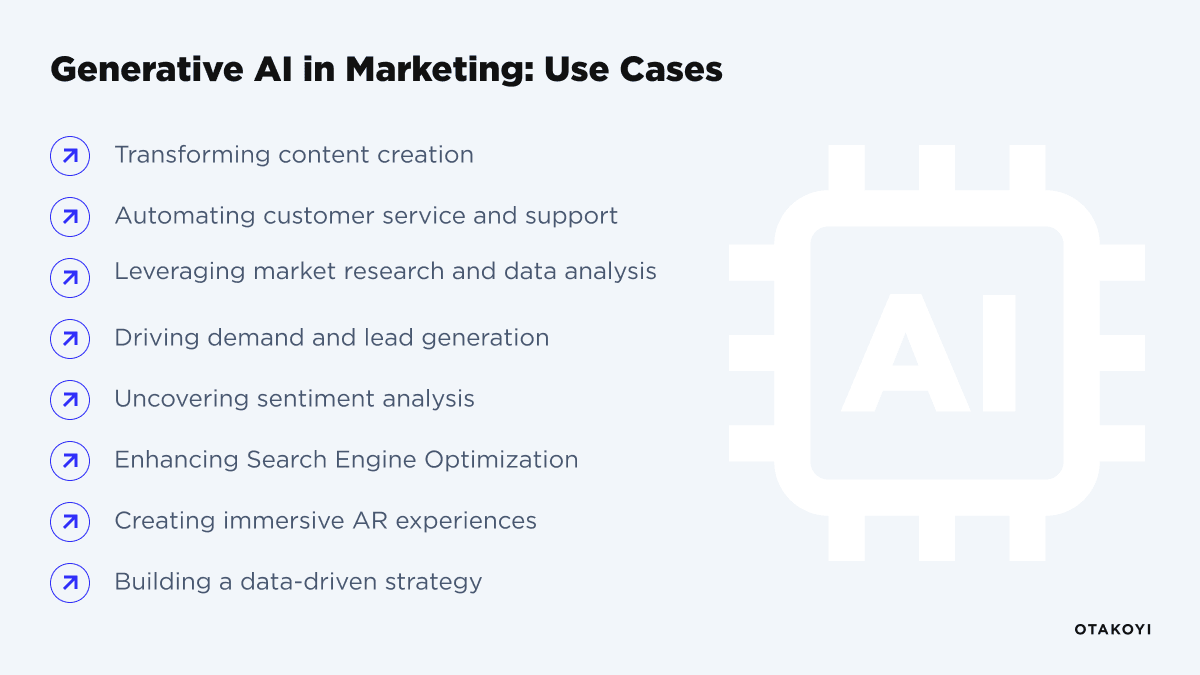
Transforming content creation
Imagine being able to create blog posts, product descriptions, and social media content at the click of a button. Maybe 10 years ago, it might seem impossible, but now, with AI tools like Jasper and Copy.ai, it has become more than real. These solutions are already helping brands produce content faster and more efficiently than ever before. Take The New York Times (they have adopted AI to assist in drafting news stories faster). Their quality is still high-ranking, but they put less effort and time into the creation process.
Personalizing content
AI has really simplified personalization. When using various apps, you may not even notice or be aware that they apply AI solutions. Here we would like to give an example of a popular streaming service Spotify. They have their famous "Wrapped" campaign, which is a perfect example of how brands use generative AI in marketing to create personalized experiences. Have you ever wondered how this app knows what music to recommend to you? Well, we’ve got good news! Every year, Spotify analyzes users' listening habits and generates a custom playlist along with personalized stats. Basically, each user feels seen and understood thanks to AI.
Boosting creative content ideation
AI can assist marketers in brainstorming new ideas. It is made possible by features like analyzing trends, consumer data, and historical performance. Business leaders can use AI to analyze social media trends and consumer feedback, helping them come up with innovative marketing ideas and campaigns that resonate with their target audience. Advanced solutions, such as a generative AI assistant, take this further by acting as a collaborative partner, suggesting campaign concepts, generating draft content, and adapting ideas in real time based on audience insights.
Automating customer service and support
We can’t help mentioning that chatbots powered by AI are transforming individual customer service. They provide really quick and efficient responses to customer queries. Brands like H&M and Sephora are using AI chatbots to assist users 24/7. What do those chatbots do? Well, they answer questions, suggest products and even complete purchases.
Leveraging market research and data analysis
We should mention AI tools (like Crayon and SimilarWeb) that allow brands to gather valuable insights into competitors’ marketing strategies and consumer behavior. These tools analyze vast amounts of data to help marketers make informed decisions about where to invest their time and resources.
Driving demand and lead generation
Generative AI in marketing can streamline demand generation by identifying high-potential leads and automating outreach efforts. At first sight, this complicated task seems easy, thanks to Salesforce’s Einstein AI. It is a great example of demand and lead generation in action. Einstein helps sales teams predict which leads are most likely to convert, which increases efficiency and drives higher ROI.
Uncovering sentiment analysis
AI-powered sentiment analysis tools can analyze how consumers feel about your brand in real-time. Whether it’s social media mentions or product reviews, AI can help brands track sentiment and adjust their messaging accordingly.
Enhancing Search Engine Optimization (SEO)
SEO is critical for brand visibility and awareness. And, of course, there are AI solutions like Clearscope that help marketing specialists optimize content for search engines. AI analyzes search patterns and keywords, ensuring that your content ranks higher on Google without the need for manual keyword research.
Creating immersive AR experiences
AI solutions are completely changing the boundaries of immersive marketing. One of the best examples is IKEA. They have their AR app powered by AI. What makes it so great, you might ask? In fact, it makes it possible to visualize furniture in customers’ homes before making a purchase. This interactive experience not only improves the user journey but also drives more informed purchasing decisions.
Building a data-driven strategy with Gen AI marketing
Data is everything for modern marketing. Let alone generative AI that helps brands turn data into actionable insights. AI tools analyze customer journeys, predict trends, conduct testing of possible campaigns, and optimize strategies in real time, ensuring that your marketing goals are always supported and driven by data.
Navigating the Risks of Generative AI in Marketing
Even though generative AI offers major benefits, you cannot say that it comes without its challenges. Marketers need to consider the potential risks and take steps to mitigate them.
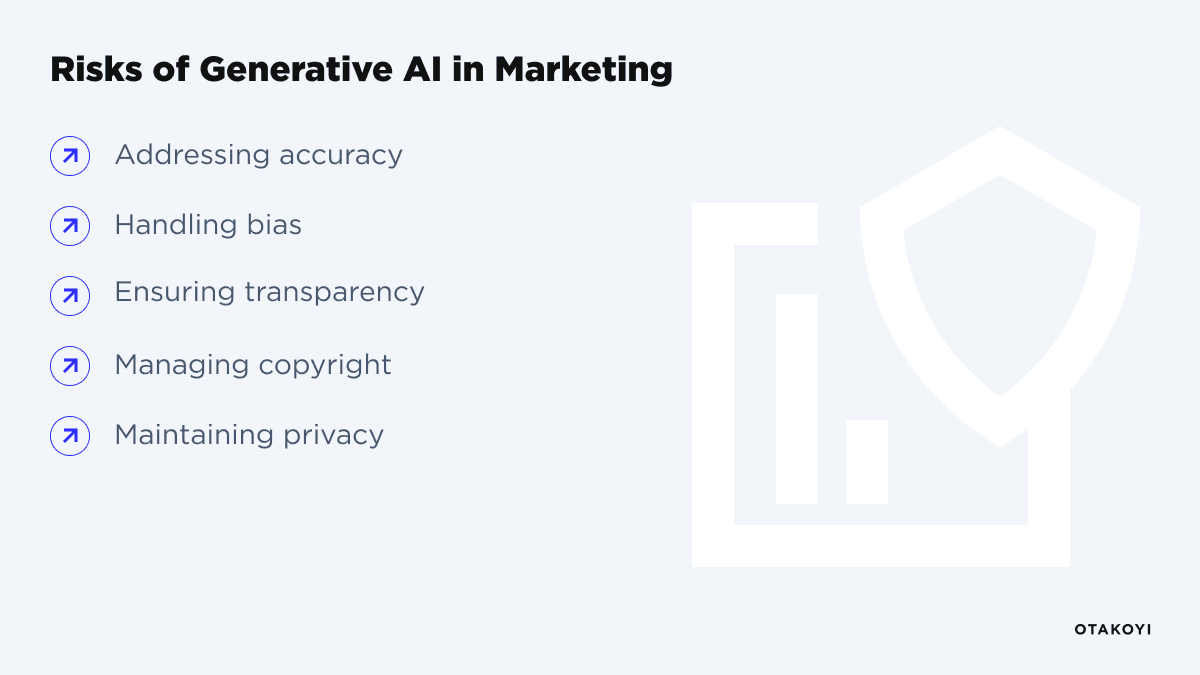
Addressing accuracy
AI isn’t perfect, and it can sometimes produce inaccurate information. This may be especially challenging in industries like healthcare or finance, where accuracy is a number one priority. Brands must ensure that all AI-generated content marketing is fact-checked before it goes live. Another side of the problem is that some tools consider human content to be AI-generated, and it really interferes with the process when you have to prove to some machine that the text is human-written (trust us, it’s the hell of a task!).
Handling bias
AI models are only as good as the data they’re trained on, and if that data is biased, the results will be too. Brands need to be careful when implementing AI tools and train them on diverse audience segments to avoid biases and harmful stereotypes.
Ensuring transparency
Always keep in mind that consumers want to know when they’re interacting with AI. It doesn’t matter the industry or task AI is conducting, brands must always be transparent about their use of AI in marketing to build trust with their audience. There’s no need to lie, as it may only destroy the bond you’re trying to make with your end users.
Managing copyright
AI-generated content can sometimes infringe on intellectual property rights, especially when it’s based on existing works. Brands should work with legal teams to ensure that all content complies with copyright laws.
Maintaining privacy
With AI tools analyzing big amounts of personal data, there are rather all-time high privacy concerns. Brands must comply with and follow data protection regulations like GDPR and ensure that customer data is used responsibly.
Partner with OTAKOYI for AI-Enhanced Marketing Success
Looking to take your marketing teams to the next level with generative AI in marketing? At OTAKOYI, we specialize in helping brands make the most of AI to create personalized, data-driven marketing strategies.
What do you get when working with our team?
#1 Timely solutions
#2 Catchy and unobtrusive ad campaigns
#3 Boosted sales and increased revenue
#4 Enhanced brand awareness
#5 High ranking in search engines
#6 Competitive image of your brand
Whether you’re looking to streamline content creation, improve customer engagement, or boost your ROI, we’re here to help you succeed.
What Our Experts Say
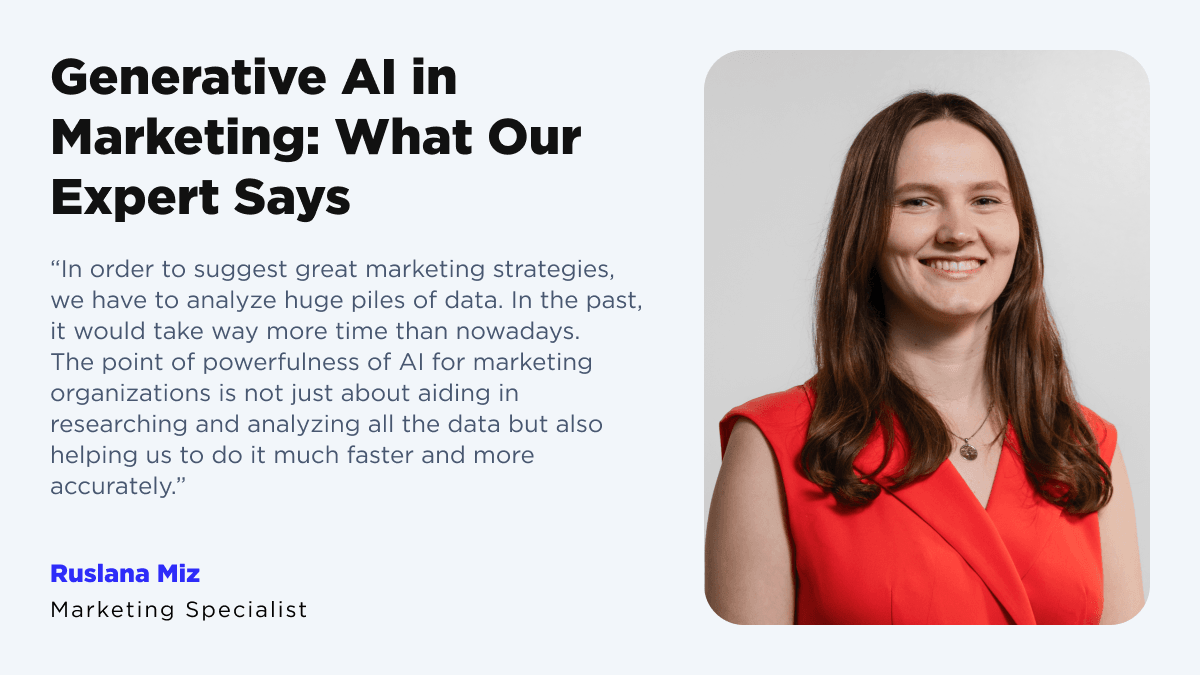
#1 SEO Specialist
“My life can definitely be divided into before and after once I started using generative AI in marketing for my daily tasks. It has never been so easy and efficient to analyze content and keywords needed to rank in high positions on Google. I find it facilitative to create technical tasks for our writers so they can come up with the best content possible.”
#2 Marketing Specialist
“In order to suggest great marketing strategies, we have to analyze huge piles of data. In the past, it would take way more time than nowadays. The point of powerfulness of AI for marketing organizations is not just about aiding in researching and analyzing all the data but also helping us to do it much faster and more accurately.”
Wrapping Up: The Future of Marketing with Generative AI
Generative AI in marketing is our present, not a distant future. This powerful tool has been reshaping the marketing landscape for the past few years. Can you guess what is about to come? Well, forecasting the future can be a challenging task. However, you can predict some future patterns for your projects when involving AI. As we’ve already mentioned, it covers everything from content creation to data analysis and is enabling brands to work smarter, not harder. Sounds like a familiar concept, right? As technology keeps evolving, the potential of generative AI for marketing will only grow. Are you eager to stay ahead of the competition? Implement this essential tool and boost your product strategy and outcomes.
After everything is said, we have the least question to ask, “So, are you ready to embrace the future of marketing with generative AI?” The ball is in your court!
